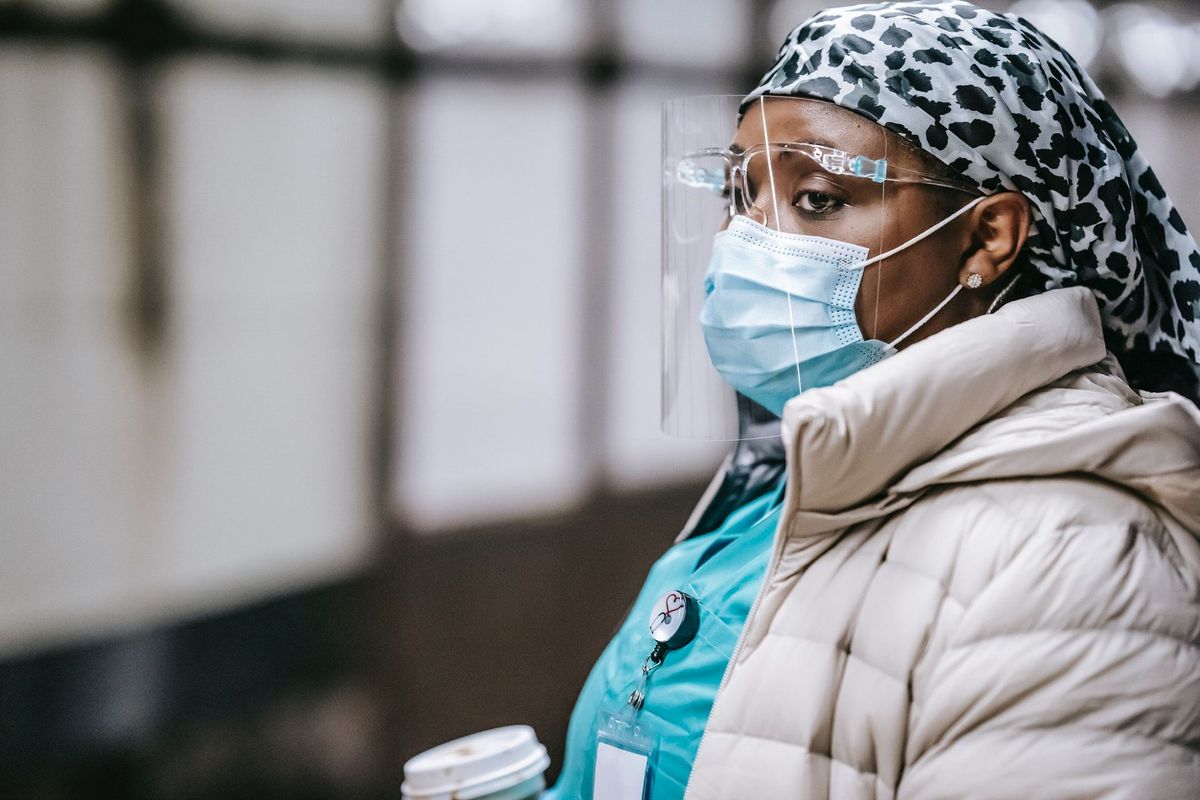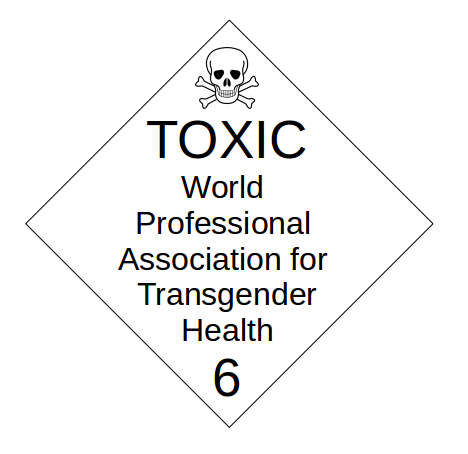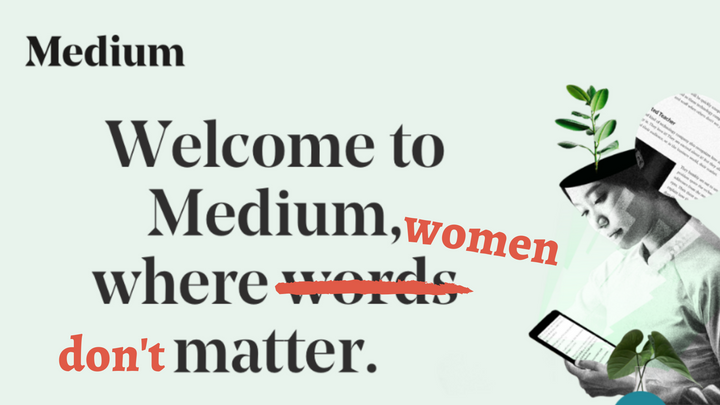The Pandemic of Discrimination Against Women
COVID-19 crisis is rolling back equality gains for women and girls across the globe

Despite a decade of overall progress for women’s rights across the globe, 2020 brought an unforeseen setback: a pandemic that, in addition to ravaging global health systems and economies, is also contributing to a regression in women's rights.
Even though women entered this crisis from a “position of economic disadvantage,” the pandemic has worsened women’s overall gains even relative to their already lagging economic position. One of the first signs that women’s lives were about to get much harder during lockdown measures to stop the spread of COVID-19 came in the form of small women’s businesses, such as hairdressers, nail salons, bakeries, cafes, flower shops and many more, closing. Unable to work, their livelihoods were among those with more risk of never reopening, once the virus has finally been controlled. According to USA Today, “women are more likely than men to own businesses in industries that have been hard-hit by the pandemic.” These stories could already be found in March 2020, when most of the world started lockdowns.
Forbes reported on the same trend in a study, stating that of the “522 women small business owners across the 15 most populous states… 54% feared they'd have to close their doors for good because of COVID-19.”
“75% of women-owned small businesses have been negatively impacted by the pandemic,” affirms the piece, based on a study by Groupon.
In October, The Guardian wrote about a report released by the Female Founders Alliance that concluded that, “before the pandemic, 87% of respondents said they were ‘highly likely to start a company’ whereas, six months later, 51% said they had ‘delayed or scrapped their plans.’” On top of that, in the latest months of 2020, four in five workers who dropped out of the labour force were women in the US. Black women and Latinas suffered the highest rates of unemployment, apart from the statistics accounting for millions of women already stuck in low paid and insecure jobs.
According to CNN, another report released at the end of December 2020 shows that employers have cut hundreds of thousands of jobs during the health crisis. In total, 156 thousand people lost their jobs, all of them women. The report also reveals that most women who lost their jobs during this period were Black or Latina and these groups continue to be affected the most, even though December showed that white women started to regain employment again.
Then, it was the crime rates. Even though most crime rates for murder, drug offenses, thefts, residential burglaries, assaults and robberies lowered enormously with people staying home and many non-essential shops closed, reports of domestic disturbances and violence increased rapidly as women and their children were locked away with abusive male partners. Another piece from USA Today confirms that the “cases of domestic violence there spiked, even as most other crimes declined,” with the similar trends almost everywhere.
Reports after two weeks of lockdown across the globe showed that the burden of domestic chores fell heavily to women, many of whom not only would work from home, but also now had to homeschool their children. The Guardian reported back in March how the “bulk of household chores in heterosexual couples is already borne by women – a situation exacerbated by the huge dislocations of the pandemic.” The piece goes on to say, “Study after study has shown that even as women have stepped forward in the workforce, in married heterosexual couples women still shoulder the bulk of household chores,” besides the fact that “80% of single-parent families are headed by single mothers.”
While students across the globe suffered with lost educational opportunities in the lockdowns, girls may have been hit worse than boys. BBC reported that British girls’ football (soccer) teams were urged to stop training. However, the boys’ teams could train because “most girls' football academies are not classed as an 'elite' sport - while boys' academies are.” The piece also talks about how women's soccer generally has fewer resources and, therefore, is unlikely to be considered “elite.”
All of this in the most developed countries in North America and Europe.
After that, many other female issues were pretty much fair game. The evidence can be seen through the alarming number of maternal deaths in Brazil due to COVID-19. A study called “The tragedy of COVID‐19 in Brazil: 124 maternal deaths and counting,” published at the International Journal of Gynecology & Obstetrics, showed that the country has the highest number of maternal deaths related to COVID-19 in the world: out of every ten pregnant women who lost their lives to COVID-19, eight were Brazilian.
In Poland, under a conservative government, one of the only three forms of legal abortion in the country has been banned: abortion due to fetus malformation. The right to abortion has been questioned in Poland for years, but, suspiciously, it was during the pandemic, which does not allow large crowds for protests during lockdowns, that the ban came.
Schoolgirls in India started facing a huge shortage of sanitary pads due to school closures. Unable to go to schools, which are a “critical part of the supply chain,” female students were left without their pads from the government scheme that promotes menstrual hygiene, distributed in state-run schools. In Fiji, menstrual pad prices have increased to the point that it’s no longer affordable, forcing families to not buy some food items so that they can keep buying the menstrual products women and girls need.
According to global education experts, girls have stopped going to school so that boys can attend while respecting social distancing, and many are expected to never return. Founder of African Women Rising, Linda Cole, explained that “following a crisis, girls’ education is one of the first areas to suffer” due mostly to poverty already in place and the worsening in their situation during the COVID-19 crisis. Many households saw earnings rapidly decrease or disappear altogether, so these families can’t afford school fees anymore. When they can afford them, “boys may be prioritized.” India has also seen a rise in the number of girls pushed to quit school and start working towards family income.
Even Female Genital Mutilation has seen a sharp rise accross African countries during the pandemic, with activists in places like Kenya reporting that their campaigns are not effective anymore due to the lockdown, travel bans, and curfews. Over 500 girls suffered FGM during the most restricted times of lockdown in the country. During a crisis, families are more likely to marry off girls for being unable to feed all of their children, and FGM is a part of the ritual to marry in many African countries.
Kenya also experienced a rise in unwanted teenage pregnancies, not only for lack of sexual education and birth control but many due to rape by male family members.
Even pregnant women in developed countries faced new issues during the crisis. While many were forced to keep working, risking getting infected, others were laid off. When the crisis is finally over, there still will be the childcare issue to sort out - years of underfunding will prevent lots of childcare facilities to reopen, having run out of business during lockdowns.
Experts suggest that since the beginning of the COVID-19 crisis, women’s rights are being rolled back at least 50 years in some areas. It is urgent that women and girls take center in the rebuilding of societies devastated by the pandemics, since they have been the most affected, but also were already globally disadvantaged even leading into the crisis.
The state of women’s rights today, in the midst of the largest pandemic of the century, serves as a reminder of one of Simone de Beauvoir's most famous quotes: “Never forget that a political, economical or religious crisis will be enough to cast doubt on women's rights. These rights will never be vested. You'll have to stay vigilant your whole life.”
4W provides paid writing work for over 50 women in countries spanning the globe. This work is made possible thanks to our paid monthly subscribers. Join today to support our work!
Enter your email below to sign in or become a 4W member and join the conversation.
(Already did this? Try refreshing the page!)





Comments